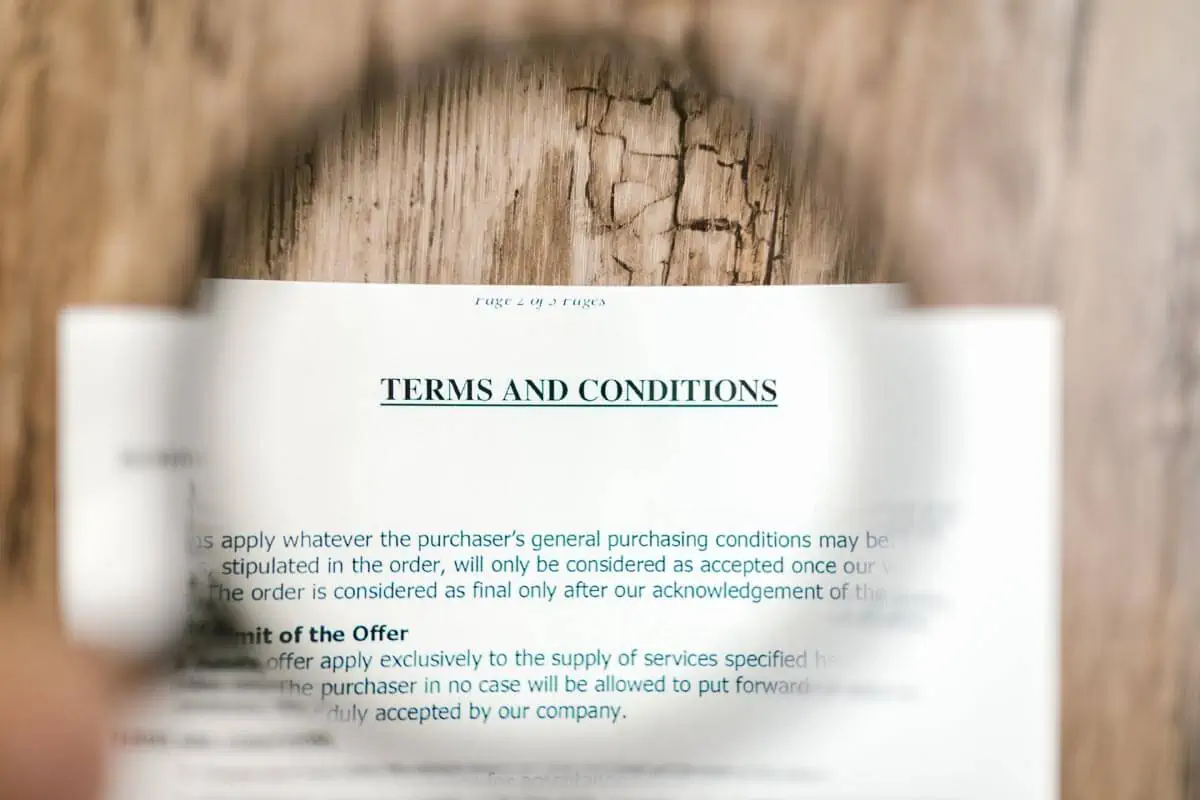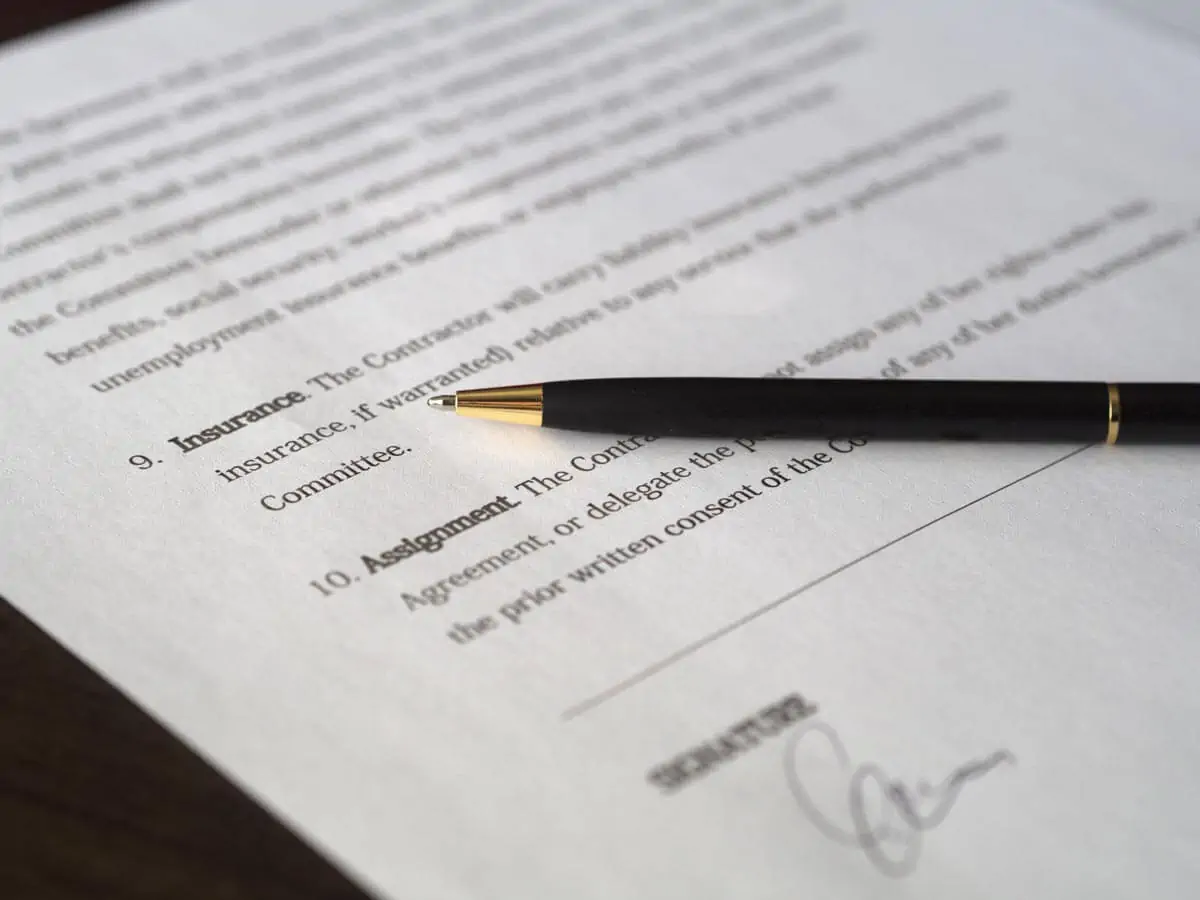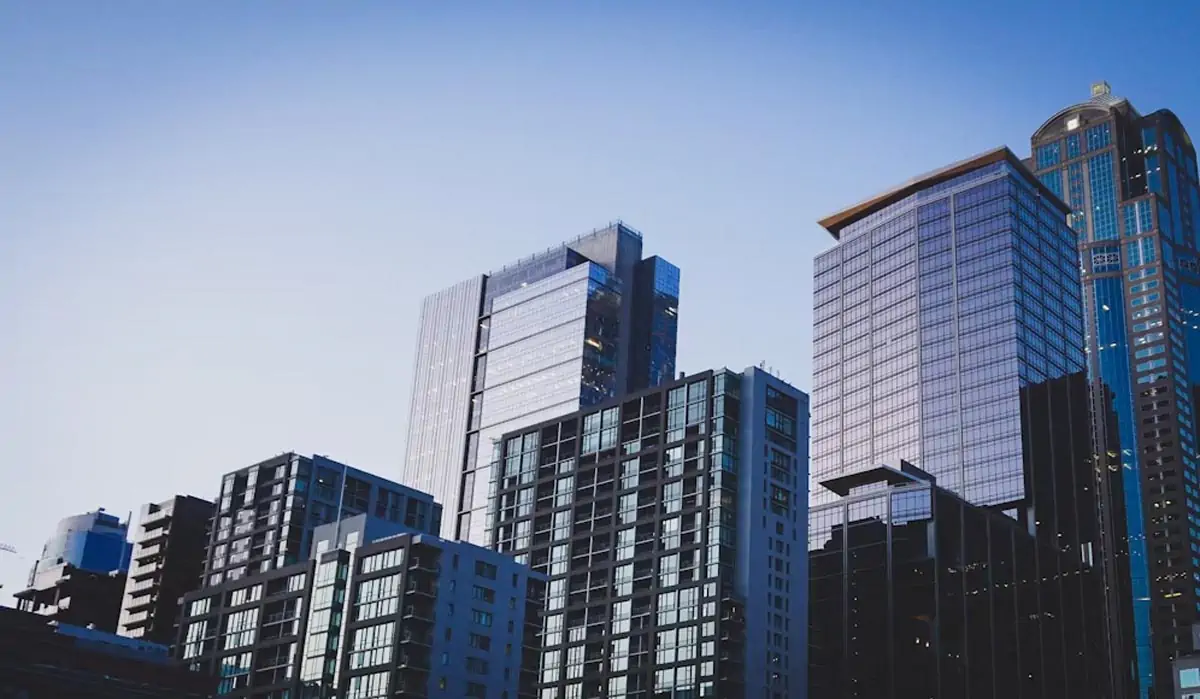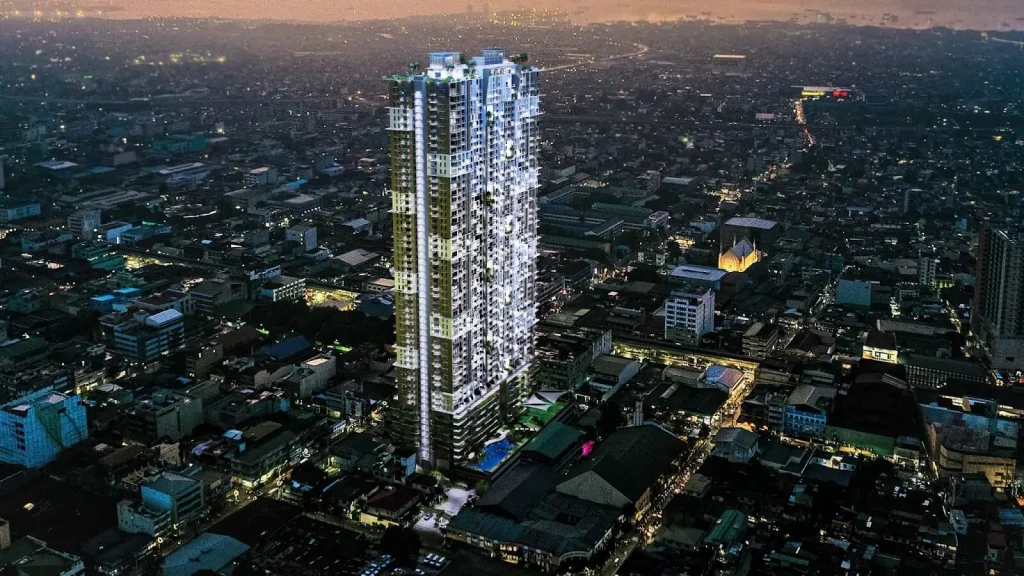 Photo courtesy of Rodnae Productions via Pexels
Photo courtesy of Rodnae Productions via Pexels
Getting into the nitty-gritty details of a commercial lease contract can be challenging. Commercial leases, unlike residential leases, are within the bounds of caveat emptor or “buyer beware” with little to no added protections. DMCI Homes Leasing Services provides a guide that will help new condo owners keep their rights exactly as detailed in the lease.
Before getting a condo, you have to familiarize yourself with the rental law and the structures of lease contracts for your own protection. From the terms and conditions, rates, maintenance, and necessary clauses, it’s important to have a proper guide to help you complete a commercial lease contract. If you want to get your money’s worth and have a business space with competitive rates, check out DMCI Homes Leasing properties.
Real Property Tax in the Philippines
The real property tax in the Philippines is based on the value of the property, as determined by the government. The tax is paid by the owner of the property and is used to fund public services such as schools and roads.
Commercial lease in the Philippines is governed by the law of contracts. The law requires that the parties to a contract must be legally capable of entering into it, and that the contract must be for a lawful purpose. The contract must also be made in good faith, and must be fair and reasonable.
The connection between the two is that the real property tax is used to fund public services that benefit both the owner of the property and the lessee. The tax is also a factor in determining the rent that is charged for a commercial lease. The amount of tax that is paid by the property owner will affect the amount of rent that is charged.
To help our clients better understand the intricacies of a commercial lease contract sample in the Philippines, our team at DMCI Homes Leasing Services outlined a guide you can easily follow.
The condo newbie’s guide to a commercial lease contract sample in the Philippines
The increase in the real estate industry also calls for a number of people investing in businesses and commercial spaces. That’s why there is a need for proper standards when it comes to rental contracts. Following the rental law to a tee.
Newbies and seasoned professionals alike can use this guide to get started in detailing the components of a contract of lease. This is the most essential legal instrument in real estate since it legally binds two or more parties, commonly known as the landlord and tenant. Both parties should be protected under the contract that’s why the lease agreement outlines the tenant's right to live and the landlord's authority to keep the property maintained at all times. That's why it's also important to also know your rental law basics. Here are the elements of the commercial lease contract that every condo newbie should know:
1. Lease term
The lease term refers to the duration of the lease and answers the questions such as:
- Is it set to stop on a specific date or is it subject to conditions?
- Is it possible for either the landlord or the renter to extend it or cancel it early?
In the term of lease, a tenant is given the option to renew for five additional successive one-year terms at a monthly rental, provided that notice is secured in writing. Additionally, a tenant may also cancel the lease agreement and terminate all of its obligations upon a designated date or payment of dues.
2. Rate
The rate is simply the cost of renting the property or the determination of rent. The rate for lease is the cost of occupying a space in commercial real estate. The lease terms will specify the time period for which the lease rate is valid, as well as any incremental increases in the lease rate.
In the contract, the determination of rent usually is shown as a table that includes the lease term and the respective monthly rental to be paid by the tenant and accepted by the landlord.
3. Escalations
Another element in the lease contract is known as “escalations.” Escalations or an escalation clause is a term in a business lease requiring the tenant to pay its pro-rata portion of increases in building costs, such as real estate taxes and operational expenses. The payments made by the tenant under an escalation clause are in addition to the base rent due under the lease.
4. Operating Expenses
An operational expense provision allows your landlord to recoup standard out-of-pocket building operating charges. As a tenant, you have to make sure that the operating expenses should be established in exact proportion to the advantages you receive under the lease.
These expenses should adhere to an objective standard such as GAAP (generally recognized accounting principles), rather than landlord-specific traditions that may lead at the expense of your rights.
5. Tenant Improvements
Commercial tenant improvements refer to when a landlord offers payments or discounted rent to a tenant in exchange for commercial lease improvements to a property. Either the landlord or the tenant hires contractors to complete the work. The landlord will either pay for the repairs directly, reimburse the tenant for the repairs, or offer reduced rent for the tenant.
When thinking about improvements to your commercial property, you should also note the top condo amenities that can boost commercial value such as extra storage space or energy efficiency.
6. Sublease & Termination Options
The sublease & termination options determine the option for the tenant to sublease the use of property, the time and date of sublease termination, and the recitals of the expiration of the rights and obligations between the tenant and the landlord.
The discretion of the sublease usually lies with the landlord, as he can include a clause that will not allow the tenant to sublease the use of the property to any sublessee. But for purposes of an agreement with sublease & termination options, the tenant is allowed to do so subject to termination clauses.
7. Renewal Rights
A renewal option is a clause in a lease contract that defines the parameters for extending or renewing an existing contract. The renewal option exists in the initial agreement as a covenant, and it specifies how the parties might renew or extend the original terms for an additional, set period of time.
Most rental agreements have renewal rights that should be in writing with prior notice to the landlord, otherwise, the occupancy shall not be deemed renewed. Knowing the importance of your renewal option entails extending the lease agreement term should you deem it necessary for your advantage.
8. Deposit
Many leases include a condition requiring the tenant to pay a security deposit to the landlord to ensure that funds would be accessible if they fail to pay the rent or make other dues in the contract. The deposit simply secures the faithful performance by the tenant for the duration of the term of the lease.
Unlike residential landlords, who are limited in how much rent they may ask for as a deposit in most cases, commercial landlords can ask for whatever amount they need, providing a safety net for financial responsibilities owed by tenants.
Such a sum of deposit will be returned to the tenant once the term has expired and the obligations have been carried out.
 Photo courtesy of Pixabay via Pexels
Photo courtesy of Pixabay via Pexels
9. Insurance
With the ownership of the property, landlords are frequently covered by insurance in the event of fires, floods, or other natural catastrophes. On the other hand, some business leases pass this cost on to the tenant directly rather than including it in the rent.
The costs are relegated to the tenants so that there would be two separate costs. This way, the rent will not be inflated due to the addition of insurance charges. In the contract, this is typically known as “insurance proceeds.”
In the event of any damage or destruction to leased premises, the tenant has the obligation to adjust the loss and have necessary settlements of insurance claims from companies issuing such policies.
Depending on the coverage of the insurance, both tenants and landlords have rights and obligations to ensure the terms of the insurance policy.
10. Maintenance
Maintenance is probably the most common element in any contract of lease. The landlord usually has the responsibility for housekeeping and repair activities that don't touch your usage of the rented space, including upkeep on significant structural features of the building.
However, note that there may be a portion for tenant’s repairs in so far as keeping the leased property in good condition at all times. Make sure your lease specifies the landlord's obligations as many leases are completely silent on this part.
11. Relocation Clause
Not all rental contracts have relocation clauses. Lease contracts without relocation clauses usually deal with the lack of larger commercial space to be leased on and accommodate a larger tenant.
However, if a tenant demands a larger space, a relocation clause provides your landlord with the ability to move your business to a different location within the office building or complex. This is also most likely to occur if your company rents a portion of a floor that is part of a larger tenant's larger floor.
Much like in any commercial space for lease, size matters. If you want to eventually move to a larger commercial space, then have a set of parameters included in the relocation clause. Keep in mind that you have to determine what the needs of your business are vis-a-vis the size of the leased property.
 Photo courtesy of Pavel Danilyuk via Pexels
Photo courtesy of Pavel Danilyuk via Pexels
Better safe than sorry
Commercial lease agreements are significantly more complex than residential contracts, and they come with a slew of potential problems and financial concerns for the tenant once done without proper guidance.
A commercial lease contract is usually written with the tenor of the landlord’s benefit, but as someone who is new to drafting a commercial lease, it’s important that you have a lawyer to help you. Your lawyer can often negotiate better terms and conditions for your behalf, putting you in a far better position before signing the contract and sealing the extent of your rights and responsibilities.
Key Takeaways
Drafting a commercial lease contract has many facets to it that might determine the efficiency of your investment in the long run. Here are some of the things that you should take to heart before you sign a commercial lease contract in the future:
- Know the basics of a commercial lease contract. Knowing the basic terms included in the commercial lease contract will give you an overview of your rights and obligations as a tenant. If you want to know more about the ways to improve your commercial leasing know-how, always take note of the elements that make up a commercial lease agreement.
- Set your parameters and determine the pitfalls. It’s important to determine the extent of your tenant rights and obligations in a commercial lease contract in order to prevent any legal issues. There are clauses in the contract where you can assert the parameters of your rights in dealing with the subject commercial property.
- Ask legal expertise. Having the commercial lease contract examined by a lawyer can help you avoid legal pitfalls that might lead to further complications. Your lawyer will also guide you on how to establish your rights as a tenant within the purview of the law. Before signing the contract, make sure to have a lawyer check the substance of the document.
If you are looking for a commercial space for lease to market your business, we can tell you more about the process right from the start of drafting a lease contract all the way to signing it. We also offer the best condominiums for lease located strategically with key areas in the city.
To learn more about DMCI Homes pre-selling and ready for occupancy projects, units for lease, and special promos, log on to www.dmcihomes.com or call (632) 5324-8888. You can also check out https://leasing.dmcihomes.com/ for currently available condos for rent.
Our team at DMCI Homes can guide you in establishing your tenant rights in a commercial lease contract. Contact us today to get started with a long-term investment for your commercial property leasing business.
For news and other updates, check out our social media accounts on Facebook, Twitter, Instagram, and YouTube.










